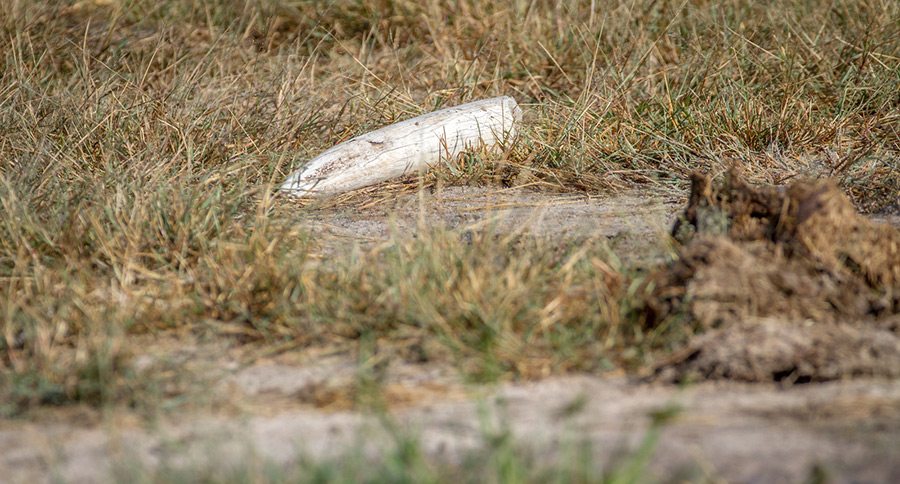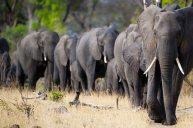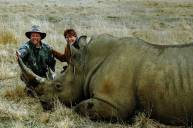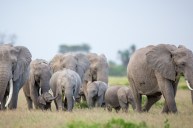North Korea may be using funds raised by diplomats smuggling rhino horn and elephant ivory to help fund other illicit regime activities.
The Global Initiative against Transnational Organized Crime released an interesting a report written by South African investigative journalist Julian Rademeyer. He claims diplomats from North Korea in Africa have been using diplomatic bags to smuggle rhino horn and elephant ivory into Asia for years.
Since 1986, 18 out of 31 diplomats caught smuggling rhino horn and ivory in Africa were North Koreans. While that may seem like a relatively small number, keep two things in mind. First, that's more than the number of diplomats from all other countries caught smuggling those items combined. Second, that's just the number of diplomats that actually got caught.
Although local officials can search a diplomatic bag under certain circumstances, they're often intimidated by diplomatic passports. So, they're normally very hesitant to interfere with any diplomatic activities. As a result, unscrupulous diplomats can abuse their privileges to smuggle rhino horns and elephant ivory in Africa.
While it's tough to find solid information, there is evidence that these aren't diplomats trying to line their own pockets. Instead, more and more evidence indicates that North Korea is using wildlife smuggling as a means of raising funds for the government itself.
According to the report, the North Korean government maintains two secretive departments called Office 38 and Office 39. Together, they conduct a wide variety of illicit activities ranging from producing counterfeit currency to drug smuggling to raise funds for the government as well as the Kim Regime. Wildlife smuggling would fit right in with the other activities these departments are already known to be involved in.
The report estimates that North Korean diplomats generate between $500 million and $1 billion annually through smuggling wildlife and other prohibited items. Especially with the international community bringing more pressure to bear on North Korea over the country's nuclear weapons program, the Kim regime is relying more and more on activities like wildlife smuggling to raise money.
According to Rademeyer, as legitimate revenue sources dry up, the quest for dark money to bolster the Kim regime is almost certain to intensify.
While it's not at all surprising that North Korea is using wildlife smuggling to help fund the government in defiance of international sanctions, it appears that diplomats from the country play a relatively small role in the rhino horn and elephant ivory trade. Instead, criminal networks rooted in other Asian countries (like Vietnam and China) account for the vast majority of wildlife poaching and smuggling in Africa.
Like what you see here? You can read more great hunting articles by John McAdams on his hunting blog. Follow him on Facebook The Big Game Hunting Blog or Twitter @TheBigGameHunt.
NEXT: TERRORIST GROUPS FUNDING RISE IN AFRICAN ELEPHANT POACHING
https://rumble.com/embed/u7gve.v3tp7h/




